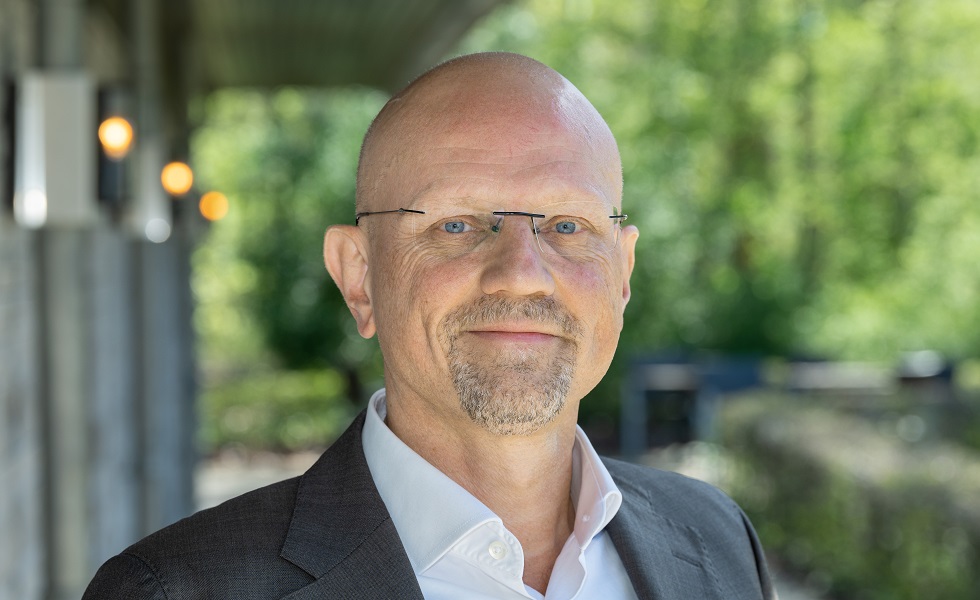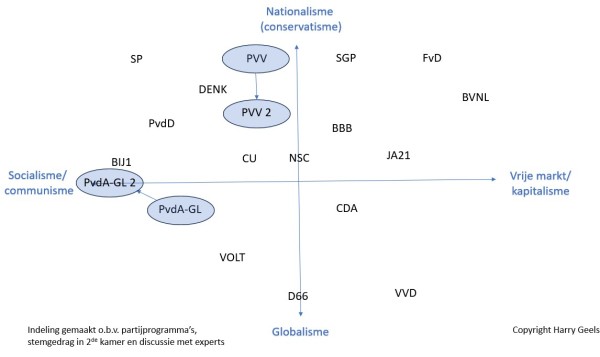Harry Geels: Three game changers just before the elections

This column was originally written in Dutch. This is an English translation.
By Harry Geels
We are experiencing a confusing but also fascinating run-up to the elections. Three game changers have occurred in a short time: the emphatic profiling of Frans Timmermans as an alternative to the 'crazy right', the 'milder' attitude of Geert Wilders, and the willingness of Pieter Omtzigt to become Prime Minister in a business cabinet. This will probably make people vote strategically. These will therefore be blood-curdling elections.
The election debates that are currently taking place are highly polarizing. But that is not the only disturbing factor. Politicians – and therefore also the people in the country – are forced by the media to choose solutions for very complex problems, such as climate change or inequality, in one minute. And then there are the many fallacies that are used back and forth, such as the argumentum ad misericordiam, the appeal to pity without good arguments.
More fallacies
There is also a lot of oversimplification, for example by stating that climate problems can be solved by tackling companies harder and that inequality can be reduced for a while by taxing wealth more heavily. Problems often run much deeper. Inequality is partly the result of powerful oligopolies, monetary and globalist policies that force the lower classes to compete in an economy at a global level and make global fiscal optimization possible. This is rarely discussed in discussions.
And then there is – as far as I am concerned – the most disturbing fallacy: the false dichotomy. Apparently there is only the '(virtuous) left' on the one hand and the 'crazy, extreme or stupid right' on the other side. However, the political landscape is multi-dimensional, as explained last time and depicted in Figure 1. For example, the PVV is not extreme right, but rather conservative left and is even closer to the SP than to the VVD. Even leading columnists in 'quality newspapers' are used to maintain this false division. But enough about the fallacies.
Figure 1

Three game changers
In a short period of time, three 'game changers' have occurred in the debate that deserve at least as much attention. They probably even determine the outcome.
The first is that Geert Wilders has become more lenient - unlike in previous elections. See also the adjustment in Figure 1. According to Wilders, everything can be discussed with the PVV. He is willing to make compromises. This has given him the necessary (still fictitious) seats in the latest polls. Other parties naturally dismiss Wilders' 'move' as spurious. An alternative explanation for Wilders' rising popularity concerns the many pro-Hamas demonstrations, about which he remains conspicuously silent.
The second is that Frans Timmermans is now the only one to profile himself as an alternative to the 'right', which is doing so well in the polls. He has even moved to the top left in the political landscape, in order to be acceptable to as many voters as possible from the two quadrants on the left of the figure above. This is how the discussion 'suddenly' started about the 2% tax on capital in companies and the increase in inheritance tax to 45% that GroenLinks-PvdA wants to implement. Measures that will further reduce the Netherlands in the business climate rankings.
Then the third. Pieter Omtzigt, although he continues to prefer to become party leader in the House of Representatives, is willing to become prime minister in a cabinet of (independent) specialist ministers. In doing so, Omtzigt puts the much-discussed and interesting idea of a business cabinet on the agenda. This was previously Pim Fortuyn's dream. This is a special move, because it is a threat to traditional career politicians. It also raises the questions of what experts are and whether they will ultimately function better in the political snake pit.
What does this mean in concrete terms?
These three last-minute game changes will lead to a nail-biting election night. We have been an election nation adrift for decades. People are in despair about the various crises in our economy, the many political parties and the downright idiotic debates full of fallacies. I hardly know anyone who will vote with conviction. And then, especially now, there is the substantive versus strategic choice. An almost impossible task. In that respect, it is disturbing and shameful that voters are portrayed as elitist, virtuous, selfish or extreme.
It's not that simple. And therefore for tomorrow: safe sailing. Perhaps a quote commonly attributed to Sigmund Freud will help: “Trust the mind in small matters, trust the heart in large matters.” Whatever we ultimately vote for: 'Every country gets the government it deserves.' (Joseph de Maistre)
This article contains a personal opinion from Harry Geels









